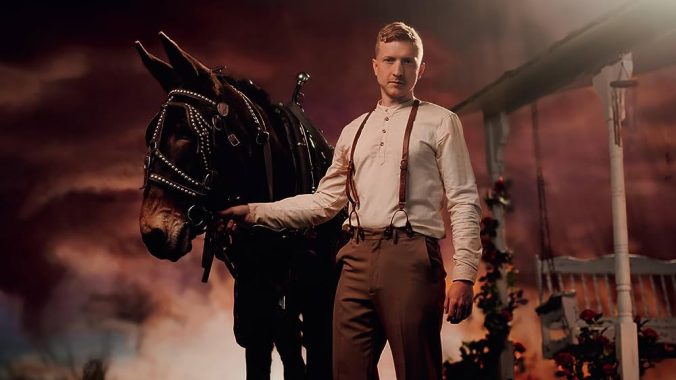Tyler Childers Builds a Rich and Inviting World on Rustin’ In The Rain
The country singer's sixth album is an ambitious and zealous showcase of his ample talents

Tyler Childers conceived his new album Rustin’ In The Rain as an audition for Elvis, and the result is an ambitious and zealous showcase of the 32-year-old’s ample talents. The title track opener is a supremely self-assured triumph—beginning with a frenetic electric guitar riff that recalls the work of rock n’ roll “Godmother” Sister Rosetta Tharpe, before transitioning into anthemic honky-tonk. Another surprise arrives at the halfway mark, when a blues-inspired piano line briefly takes center stage, courtesy of Chase Lewis. The song is an effective and exhaustive showcase of the many ambitions of Childers and the alchemized finesse of his backing band, The Food Stamps. Its maximalist tendencies—and Childers’ impassioned croon—suggest that “Rustin’ In The Rain” was designed not just as an audition for Elvis, but to Country Music’s Hall of Fame. In short, this record is Tyler Childers’ claim to greatness.
-

-

-

-

-

-

-

-

-

-

-

-

-

-

-

-

-

-

-

-

-

-

-

-

-

-

-

-

-

-

-

-

-

-

-

-

-

-

-

-








































